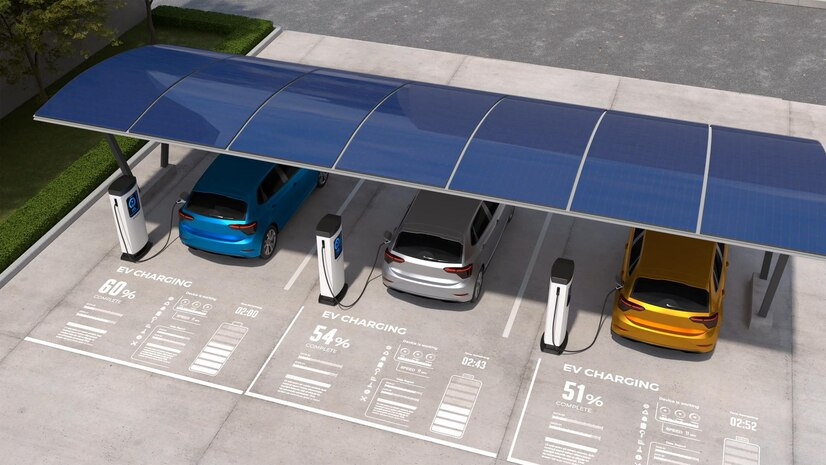As the world accelerates toward sustainable freight and logistics, the demand for high-capacity electric trucks capable of long-haul cargo transport is growing rapidly. However, one of the biggest challenges in electrifying heavy-duty vehicles is charging speed—traditional charging systems are too slow for large commercial fleets that operate on tight schedules.
Enter Megawatt Charging System (MCS), a revolutionary fast-charging technology designed to power electric trucks and buses in minutes rather than hours. With charging capacities exceeding 1,000 kW (1 MW) and scaling up to 3.75 MW, MCS is poised to transform the commercial transportation sector, enabling faster adoption of zero-emission heavy-duty vehicles.
Leading the charge in this innovation is Virta, a key player in EV charging infrastructure, which is developing a 1.2 MW charging system set to launch in 2025 as part of a pilot project in Sweden. This initiative, in collaboration with Hedin Supercharge, marks a major milestone in high-power charging for electric trucks, setting the stage for a new era in sustainable logistics.

The Megawatt Charging System (MCS) is a high-performance charging solution specifically engineered for electric trucks, buses, and other heavy-duty commercial vehicles with massive battery capacities. Unlike conventional EV chargers, MCS delivers ultra-fast charging at power levels exceeding 1 MW, drastically reducing downtime for large fleets.
Key Features of MCS:
Ultra-Fast Charging: Capable of charging heavy-duty EVs to 80% in just minutes, compared to hours with current systems.
High Power Output: Supports up to 3.75 MW, making it ideal for long-haul electric trucks.
Standardized Design: Follows SAE J3271 standards, ensuring compatibility across manufacturers.
Interoperability: Designed to work seamlessly with different vehicle models, charging networks, and grid systems.
While current Combined Charging System (CCS) standards (like J1772) are sufficient for passenger EVs, they are far too slow for commercial trucks. A typical 350 kW CCS charger would take hours to replenish a large truck’s battery, making it impractical for logistics operations.
MCS bridges this gap by delivering megawatt-level power, enabling:
Faster turnaround times for freight operators.
Increased efficiency in fleet management.
Longer driving ranges with quick charging stops.
Lower total cost of ownership (TCO) for electric trucks by minimizing downtime.
MCS is not designed for passenger electric cars, as their batteries cannot handle such extreme power levels. Here’s why:
Battery Limitations: Most passenger EVs support 50 kW to 350 kW DC fast charging, which is sufficient for their smaller battery packs.
Economic Feasibility: Installing MCS for cars would be overkill, as the infrastructure costs are significantly higher than standard fast chargers.
Battery Health Risks: Subjecting passenger EV batteries to MW-level charging could degrade them prematurely.
Instead, MCS is exclusively tailored for heavy-duty applications, where high-power charging is both necessary and economically viable.
To ensure safety, reliability, and interoperability, MCS follows the SAE J3271 standard, developed with input from leading research institutions like Argonne National Laboratory. Key technical requirements include:
Minimum output: 440 kW
Maximum output: 3.75 MW
Voltage range: Up to 1,250V (higher than CCS)
Standardized plug design (different from CCS)
Enhanced cooling systems to handle extreme power loads
Advanced communication protocols between vehicle, charger, and grid
Smart load-balancing to prevent grid overload
Bidirectional charging potential (V2G/V2X compatibility in the future)
Importantly, MCS will not replace CCS—instead, it will coexist as a complementary standard for heavy-duty vehicles, while passenger EVs continue using conventional fast chargers.
One of the most ambitious MCS projects underway is Virta’s 1.2 MW charging pilot in Sweden, set to launch in 2025. This initiative, in partnership with Hedin Supercharge, will test ultra-fast charging for electric trucks in real-world conditions.
What to Expect from the Pilot:
1.2 MW charging capability (scalable for future needs)
Real-world data collection on charging efficiency, grid impact, and vehicle performance
Potential expansion across Europe’s freight corridors
This project could pave the way for widespread MCS adoption, proving that megawatt charging is not just feasible but essential for decarbonizing heavy transport.
While MCS is a groundbreaking innovation, several hurdles remain:
Building MW-level chargers requires significant investment in grid upgrades and high-power equipment.
Governments and private players must collaborate to fund large-scale deployment.
Local grids must be reinforced to handle multi-megawatt loads without disruptions.
Renewable energy integration will be crucial to ensure sustainable power sourcing.
Currently, few electric trucks support MCS, but major manufacturers (Tesla, Volvo, Daimler) are developing compatible models.
Despite these challenges, the future of MCS looks promising. As battery technology advances and more electric trucks hit the market, megawatt charging will become the backbone of zero-emission freight transport.
The Megawatt Charging System (MCS) represents a quantum leap in EV infrastructure, unlocking the potential for fully electric long-haul trucking. With ultra-fast charging, standardized protocols, and pilot projects already underway, MCS is set to revolutionize the transportation industry.
As Virta’s 1.2 MW pilot in Sweden demonstrates, the era of megawatt charging is closer than we think. By 2025-2030, we can expect MCS stations to proliferate along major freight routes, enabling a cleaner, faster, and more efficient future for global logistics.
The shift to sustainable trucking is no longer a question of "if" but "when"—and MCS is the key to making it happen.